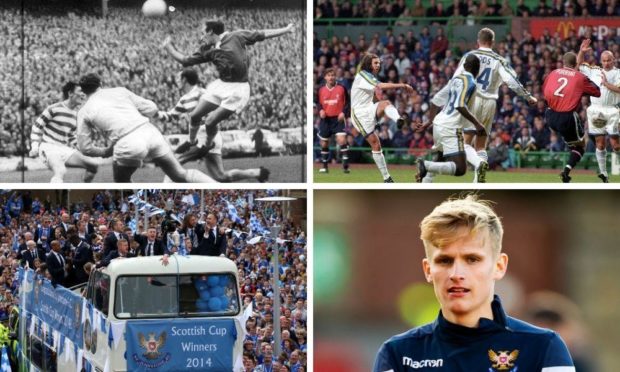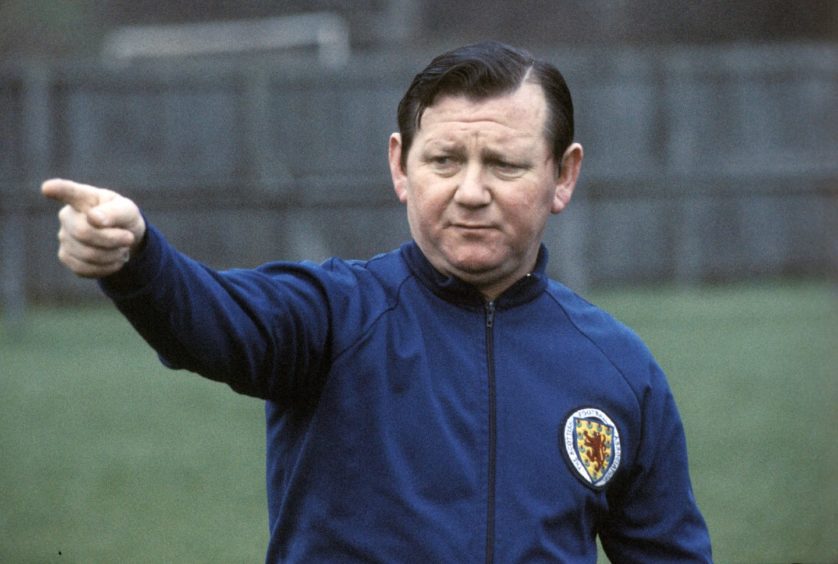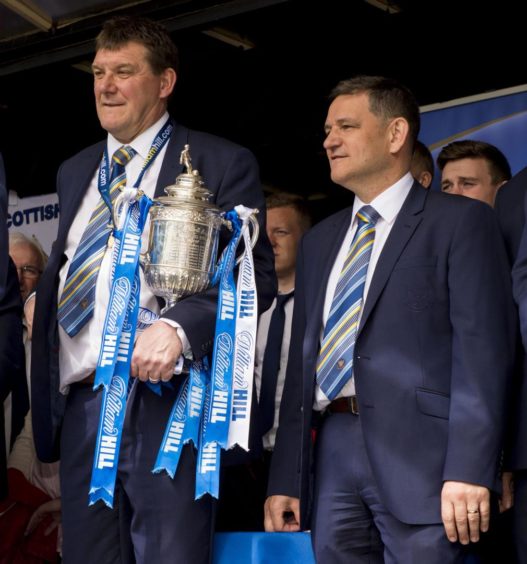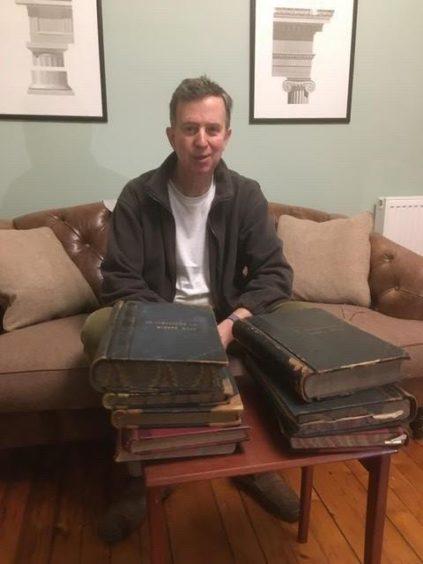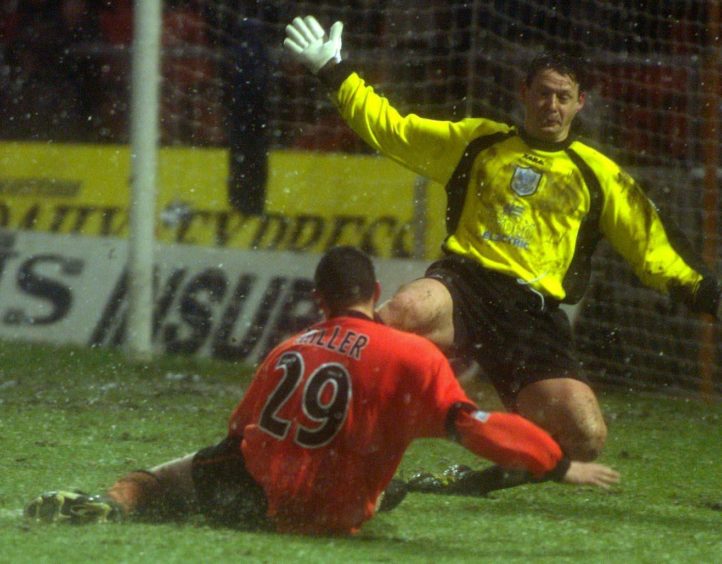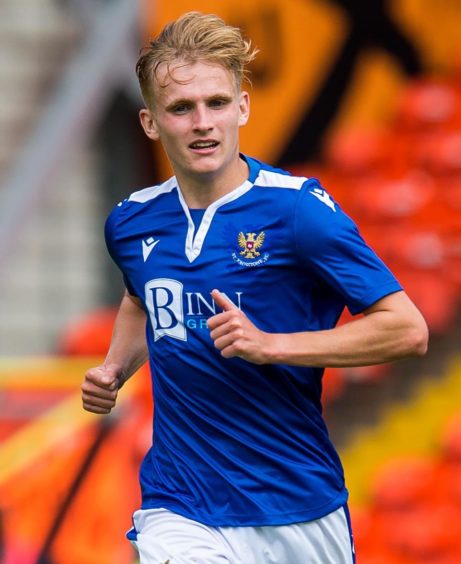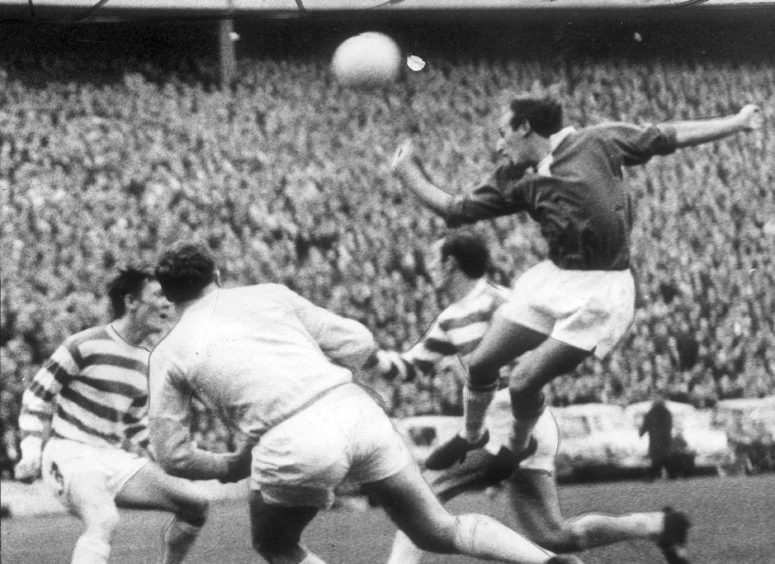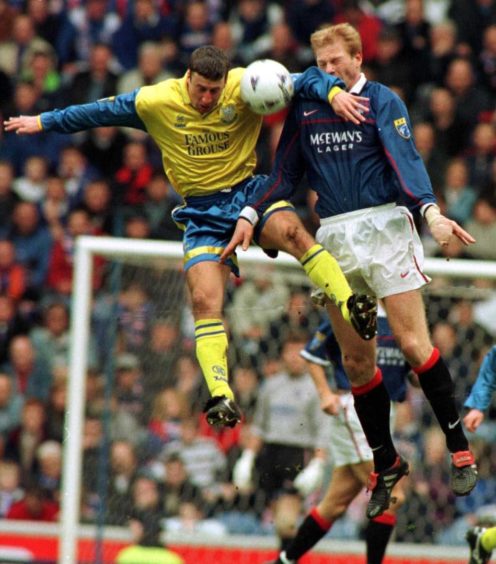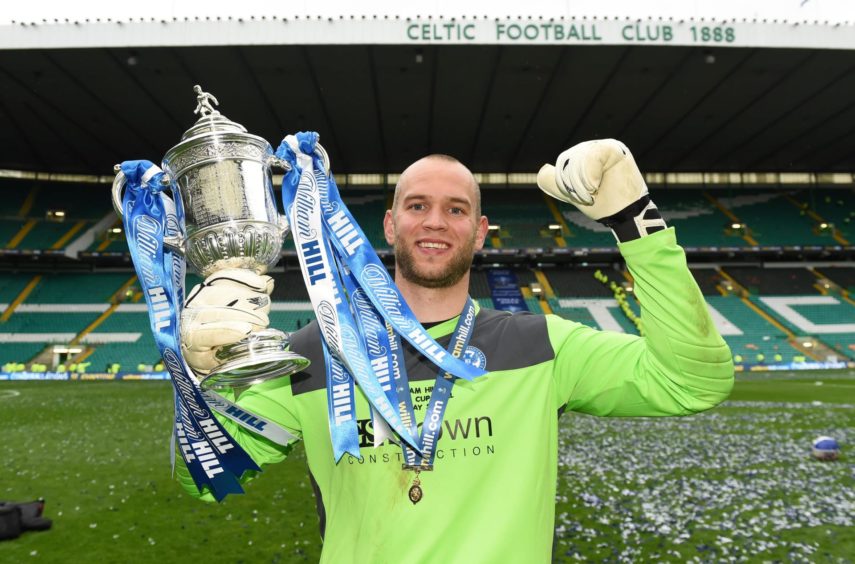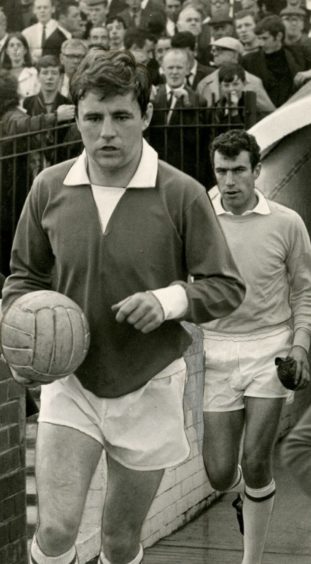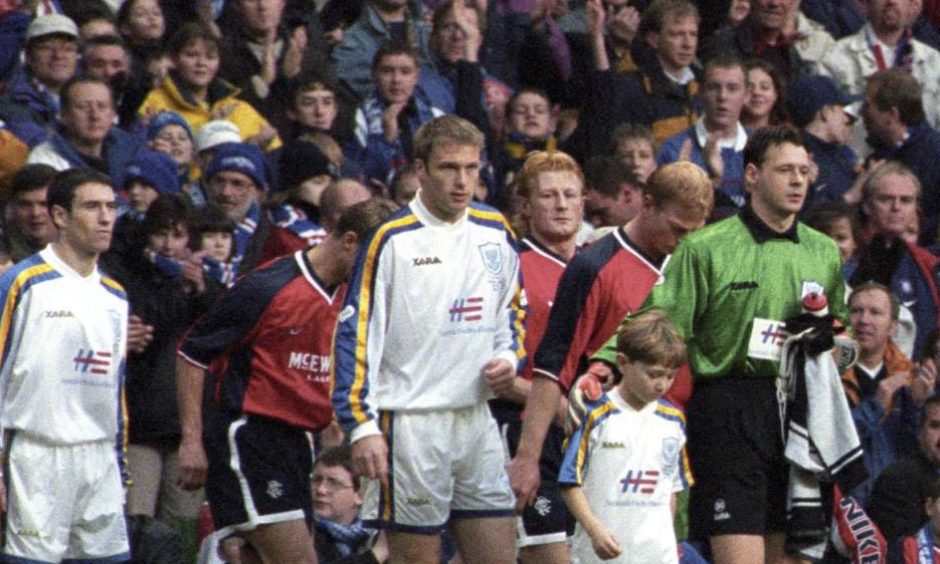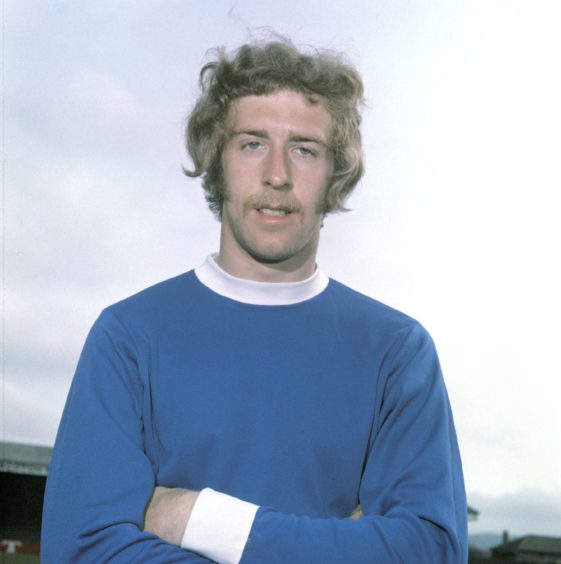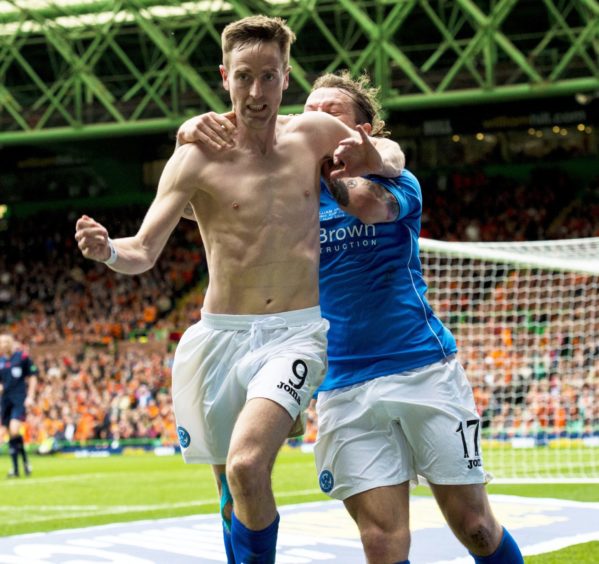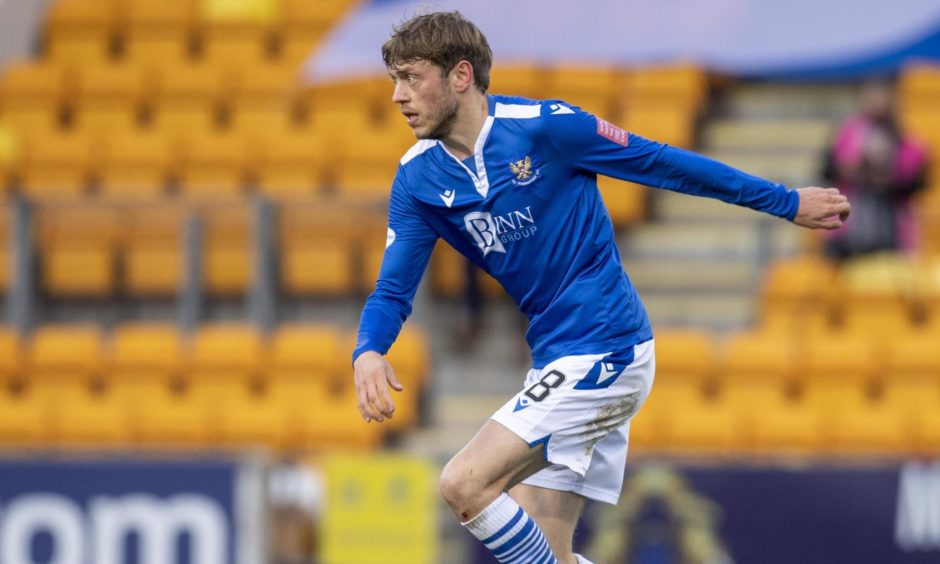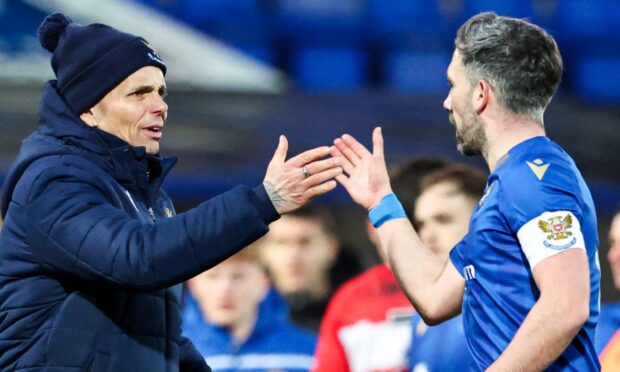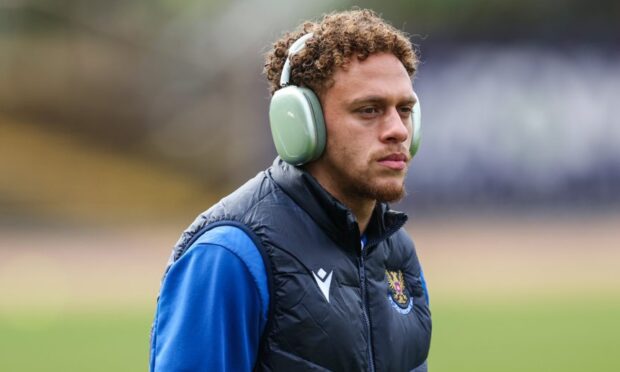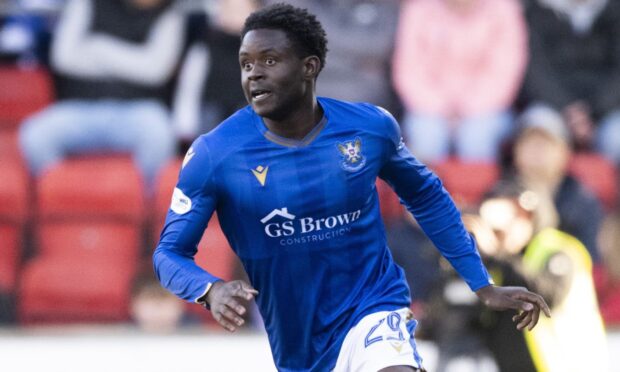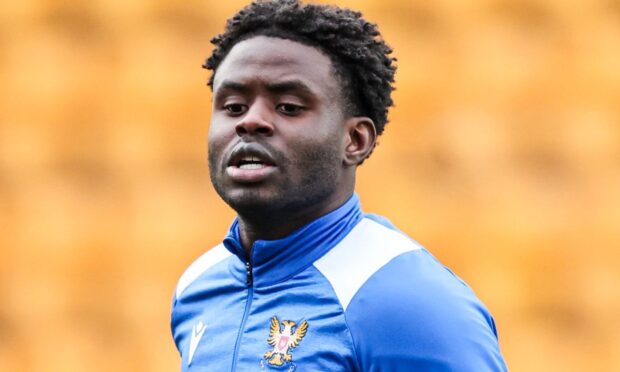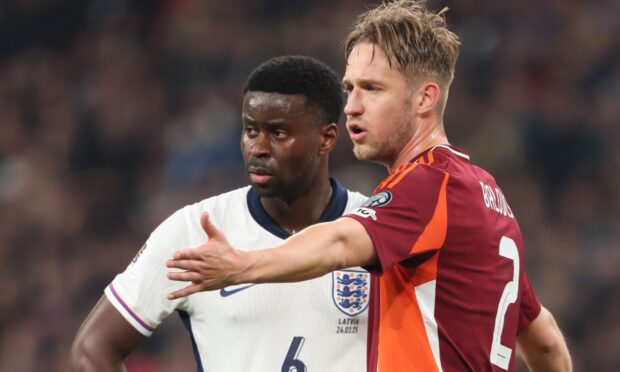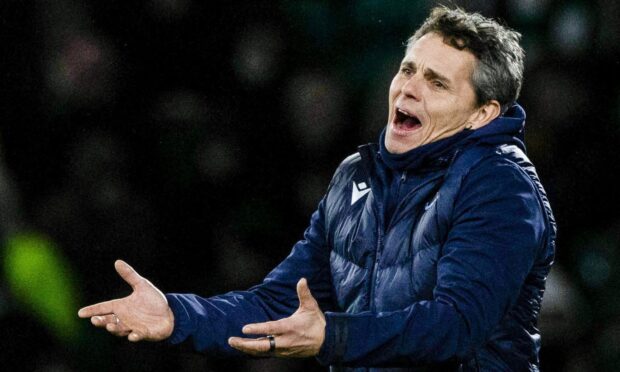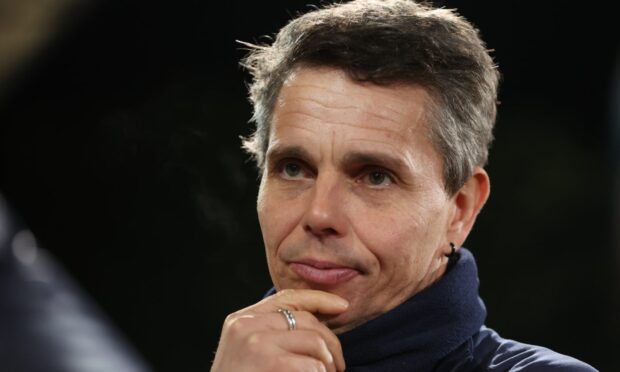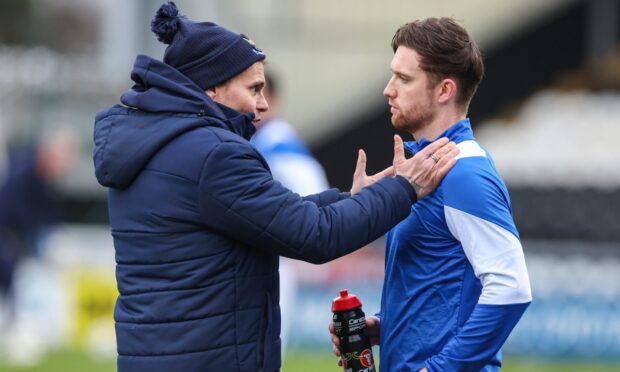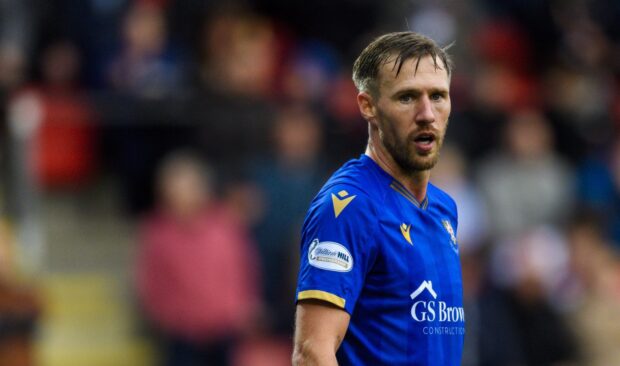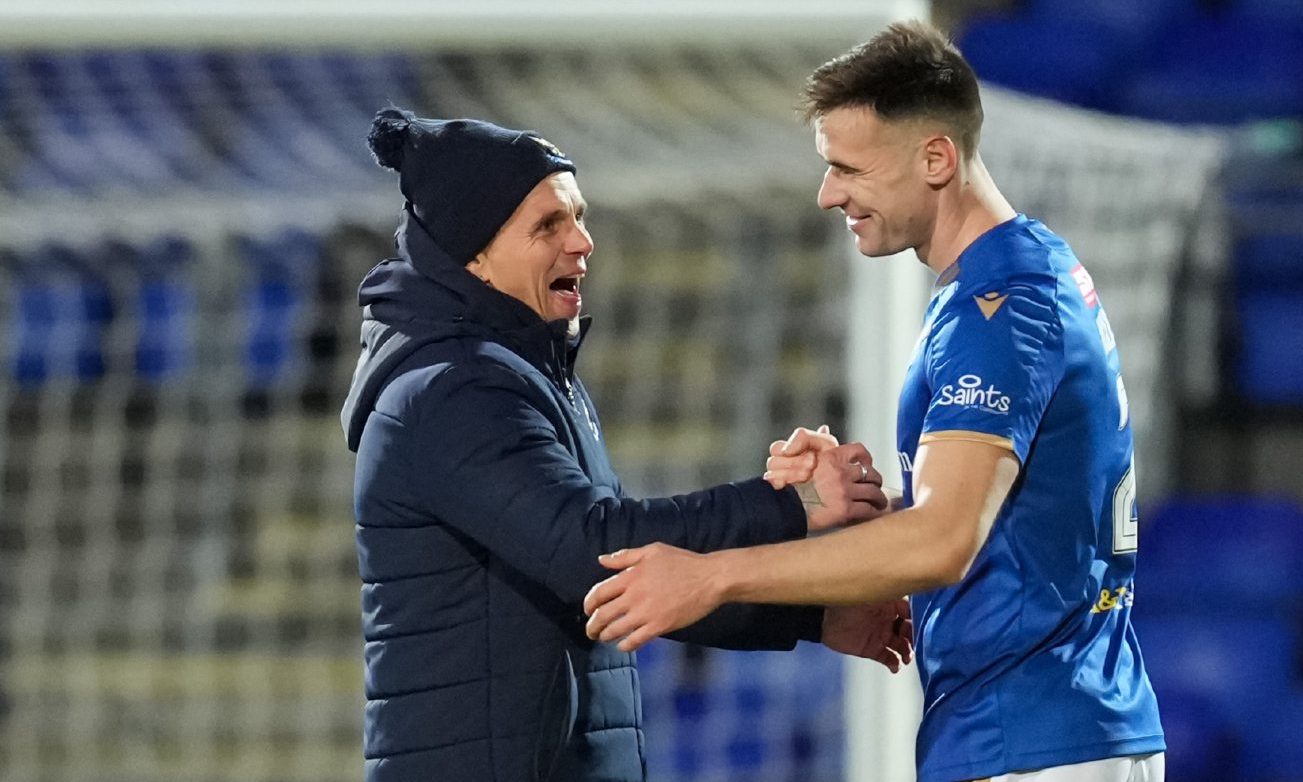Cup finals don’t come along very regularly for St Johnstone.
Excluding the Challenge Cup for lower league sides, Sunday’s Betfred Cup clash with Livingston will only be the fourth in their 137-year history.
Breaking new ground
Willie Ormond’s 1969 team broke new ground when they made it to Hampden Park in the League Cup, losing 1-0 to Celtic.
In 1998, Paul Sturrock and then Sandy Clark guided Saints through the knock-out rounds to the final of the same competition, when they again lost, this time 2-1 to Rangers.
The only triumph came, of course, in 2014 when Tommy Wright’s side defeated Dundee United 2-0 to become Scottish Cup winners and legends.
Club historians Alastair Blair and Brian Doyle recently published a book on ‘The Great Saints’, which included the top 50 players of all time.
Courier Sport tasked the co-authors with naming a ‘Best Ever Cup Final’ team from the ’69, ’98 and 2014 line-ups, as well as Callum Davidson’s squad for this weekend.
The agreed formation was 4-4-2 and, on this occasion, no collusion was permitted.
It transpires, great St Johnstone minds don’t always think alike, with Alastair and Brian only having seven joint picks in their starting XIs. And they have chosen different managers!
Alastair Blair’s team
In theory, picking a team from every Saints’ side that has contested a major final (plus the team that will play against Livingston on the 28th) ought to be easy.
You simply go to Hagiography: the 60 Greatest Saints and select the very best from there.
However, football is a game of emotions as well as hard facts, so I have, in at least one instance, allowed my heart to over-rule my head.
Not that, in my opinion, this weakens the team in the slightest, but rather, again in my opinion, increases its attacking potential.
Goalkeeper
With apologies to Zander Clark and Jimmy Donaldson, both of whom were great keepers, this was a straight competition between Alan Main and Alan Mannus, with Main just making the cut.
He should have played for Scotland and would have if he was at a ‘bigger’ team.
Right-back
This was easy – Dave Mackay. Like Main, he should have played for Scotland, but instead had to settle for being the 2014 Scottish Cup winners’ captain.
Left-back
It has to be Willie Coburn, another of the greatest Saints. Willie tackled properly – hard but fair – and didn’t like wingers (not live ones anyway).
Centre-backs
Another fairly easy choice. Alan Kernaghan and Steven Anderson will be the twin pillars at the heart of this side’s defensive unit.
Ando would throw himself in front of a tank to stop a goal and, as we know from 2014, is also capable of scoring in the biggest of games.
Kernaghan, as well as being a proper defensive unit, was also a very good footballer, able to bring the ball out of defence and, if required, beat players and score goals from almost any distance.
Centre midfield
I initially thought I’d anchor the team around Nick Dasovic. Nick made our all-time Saints’ XI in Hagiography, but for this team I have looked to the future and chosen Ali McCann.
I was at Coatbridge to see his debut and thought at the time that he looked promising.
Today, he is the lynchpin around which St Johnstone revolve and, while I hope he stays for another season rather than going south too early as I believe Stevie May did, he will in time move to a much bigger club than St Johnstone.
If he has another season with us we’ll get more money, plus he might be able to link up with Alex Ferguson, who is reportedly the next big star to come through our academy.
Alongside Ali is Philip Scott. Like McCann, Phizzy was a box-to-box midfielder, but arguably with a greater goal threat.
Bob Crampsey told me he thought that Philip might have played for Scotland but although that didn’t happen, he did go to the top fight in England (something even home-based Scottish internationalists struggle to do nowadays) where, unfortunately, his career was cut short by injury.
The power and energy these two would bring to centre midfield would be phenomenal, and I think they’d gel very well together.
Wide left
It was in the centre of midfield that I had the most problems in deciding who to pick. Out wide, there is no debate. It has to be John Connolly – the greatest ever St Johnstone player – at outside left.
Even though he played more centrally for Saints, he performed on the left wing for Everton after his move there and would be adept at cutting in and linking up with the strikers.
THROWBACK THURSDAY | Club legends Willie Coburn and John Connolly jog around the Muirton Park track. RIP Willie pic.twitter.com/xYZOWQAZ71
— St. Johnstone FC (@StJohnstone) December 10, 2015
Wide right
I’ve gone for another obvious choice in Kenny Aird. There are others who came into consideration, notably John O’Neil, but on his day Kenny would turn opposition defenders inside out before laying on a goal with an accurate cross.
And he could score goals too. Fast and direct, his ability to dribble past full-backs and leave them for dead is something that is largely missing from the modern game.
Strikers
One of these is easy. It has to be Henry Hall, the scorer of more goals at the top level than anyone else in the club’s history.
Alongside Henry, I’ve chosen Steven MacLean.
Macca’s football intelligence and ability to bring others into play would mean that he would link up with Hall and the entire midfield and create opportunities that others might not see.
Macca is more than capable of weighing in with a goal or two as well.
Substitutes
Goalkeeper – Alan Mannus
An unflappable character and a great goalkeeper (and a very nice man).
Defenders – Frazer Wright and John McQuillan
I’ve only got two defenders on the bench. My first thought was Danny Griffin, but unfortunately he didn’t play in a major final for Saints, so I’ve gone with Frazer Wright for his defensive prowess and experience at centre-back.
John McQuillan is my choice to fill in at full-back if required (and bomb forward to support the attack).
Midfielders – David Wotherspoon, Paul Kane, John O’Neil, Fred Aitken and Ian McPhee
There are so many to choose from but these five bring different qualities and Wotherspoon, O’Neil and Aitken would also weigh in with goals. There may well be some dispute over who takes free-kicks if some of them get on the pitch, though!
Striker – George O’Boyle
For a back-up striker, although he didn’t make our 60 Greatest Saints (largely for one, very obvious, reason) I’ve chosen George O’Boyle.
As well as being a high quality goal scorer for both club and country (any goal against Germany is impressive), George was also one of those footballers who was always prepared to take time out with the fans and go beyond the call of duty in attending functions and events.
Manager – Tommy Wright
For me, it’s a straight competition between Willie Ormond, Tommy Wright or Callum Davidson. Tommy is Saints’ greatest manager.
Callum would bring all the knowledge and science that football has added since Willie’s day, whereas Willie would just tell his side to go and beat the opposition because they are better than them.
The emphasis would be more on attack with Willie, but in today’s football world I’d have to go with Tommy or Callum. Tommy gets the nod, just, because of his greater experience and the fact that he has won a cup (albeit Callum was at his side).
But if Callum guides our team to success at Hampden, I may have to change my mind if we get invited back to do this again the next time Saints make a major final!
Brian Doyle’s team
Goalkeeper
This is a really difficult one to start with but for me Alan Mannus just edges it.
He was clearly less flamboyant than Alan Main but he gets the nod on the basis that he had 59 clean sheets in 192 Premiership matches giving him a 30.73% rate.
Main had 40 clean sheets from 143 top flight appearances, yielding a 27.97% rate. His saves against Dundee and in Monaco will live long in the favourite memories category.
It’s very hard to separate them but Mannus’ saves in the 2014 cup final just get him my vote by a whisker.
Right-back
Dave Mackay is a stand-out.
Dave was a captain with great leadership qualities.
"The decision hasn't been an easy one"
.@St_Johnstone_FC captain Dave MacKay retires:https://t.co/2YLlBORBWE pic.twitter.com/8DP1gGd3FZ
— BBC Sport Scotland (@BBCSportScot) September 15, 2016
He was a good, clean tackler, which gets him in the team ahead of John Lambie who was also an excellent full-back with great speed.
It’s the finest of margins choosing the better of the two again.
Left-back
Willie Coburn.
In my view Brian Easton was a top defender but Willie was quicker and could use either foot, whereas Easty was predominantly left-sided.
Willie played for 10 seasons, making 324 appearances in all competitions.
Unfortunately, Easton suffered from injury towards the end of his time at Saints which restricted his number of appearances (167) to around half of those made by Coburn.
His (only) goal against Aberdeen will live long in the memory.
It’s good to see him now playing again for Hamilton Accies.
Centre-backs
Whilst Frazer Wright was a very good defender, Benny Rooney was a dynamic and outstanding captain. A true leader.
He chipped in with quite a few goals throughout his Saints career too.
Darren Dods wasn’t in the frame to play alongside Rooney.
Leaving Steven Anderson out of this team, particularly in view of his cup final performance and goal, was really, really hard.
He was a truly great Saint who, in my view, deserves to be in the next Hall of Fame selection.
However, Alan Kernaghan was an established Republic of Ireland International player and brought both experience and genuine quality to the 1998 team.
It was a pity that injuries curtailed the number of appearances he made.
When he was at Manchester City he played in the same team as both Steve Lomas and Tommy Wright during the 1996-97 season.
Central midfield
Nick Dasovic wins hands down for the ‘number four’ role.
You are comparing an International player with either Alex Gordon or James Dunne from the ’69 and 2014 teams.
When you add in the fact Nick scored in both the semi-final and final, that puts him miles ahead of the other two.
Again, John Connolly was a top, top player who along with Henry Hall helped take Saints into Europe for the first time.
He had the ability to glide past opponents and either score himself or put it on a plate for a colleague. In a 4-4-2 you could play him out wide on the left or, as here, in the middle.
John was the best player I’ve ever seen in a Saints shirt.
Wide right
Kenny Aird was an old-fashioned Scottish winger, both fast and tricky, who not only made goals for his team-mates but scored some spectacular ones himself.
There were two against Rangers at Muirton which particularly stand out.
He received some rough treatment from opposition defenders who wouldn’t get away with those type of tackles in today’s game.
Wide left
When compared to Miguel Simao or Mikey O’Halloran, Fred Aitken was pedestrian.
But, what a left foot and boy could he land a cross on a sixpence.
He scored an impressive 56 goals himself but also created so many for Hall and Connolly.
Strikers
Henry Hall transformed Willie Ormond’s team when he arrived from Stirling Albion. He was a natural goal scorer who was always in the right place at the right time.
Henry didn’t score many with his head but when the chances came along he just side-footed the ball into the net.
He was Saints’ top goal scorer in four of six seasons in the late 60s and early 70s.
As the song goes “…and Henry is better than anyone.”
Steven MacLean was a prolific penalty box scorer who could also supply chances for others. Who can ever forget his goal in the 2014 final and, of course, his celebration after it?
He gets in ahead of big Buck McCarry, who was a different type of player, and George O’Boyle.
Substitutes
Goalkeeper – Alan Main
He narrowly missed out to start so is the obvious back-up.
Defender – Steven Anderson
Ando was unfortunate to miss out on a starting place so his place on the bench needs on explanation.
Midfielders – Murray Davidson, Chris Millar, David Wotherspoon and Liam Craig
It was really difficult (yet again!) to not be able to include Muzz and Chris Millar in the starting line-up.
David Wotherspoon is a really skilful player, and an internationalist, and Liam is versatile enough to play in a number of midfield positions.
I have no doubts that had he not made the move to Hibs he would have been in the 2014 cup final squad.
Strikers – Gordon Whitelaw, Stevie May and Roddy Grant
The 2014 version of Stevie May had a terrific partnership with Macca. Sadly, injuries have meant that today he is not the same player as he was back then.
In his heyday, if we needed a goal, then Roddy Grant would have been the one to call on.
Gordon was another very talented player who scored 70 goals during his Saints career, including a stunner against Hamburg.
He showed his versatility by playing in midfield too.
Manager – Willie Ormond
Both Tommy Wright and Willie Ormond had the knack of finding and developing young players.
John Connolly, Jim Pearson and Gordon Smith are great examples for Ormond.
He also raised very good pros to much higher levels and you only have to look at Ian McPhee and Gordon Whitelaw to see evidence of that.
Throw in Kenny Aird and John Lambie, who were both signed by him and flourished under his influence.
St Johnstone's Fred Aitken, Kenny Aird, John Connolly & Henry Hall with manager Willie Ormond. (1971) – Alex Cowper pic.twitter.com/iwNocCH2mG
— PictureThis Scotland (@74frankfurt) March 28, 2017
For Tommy, the foundations that he has left Callum Davidson of Zander Clark, Jason Kerr, Liam Gordon, Ali McCann and David Wotherspoon (and it seems the young lad Ferguson) are exceptionally strong but in my opinion despite winning the Scottish Cup, not quite as strong as Ormond’s.
Clearly over the years Tommy had to wheel and deal to bring in players such as Lee Croft, Gary McDonald and James McFadden to gain success with top six places and, of course, Europe.
The fact that Ormond went on to be Scotland team manager and took us to the World Cup in Germany also adds weight to the argument for him.
Accordingly, even though Tommy worked wonders, my vote goes to Ormond.
